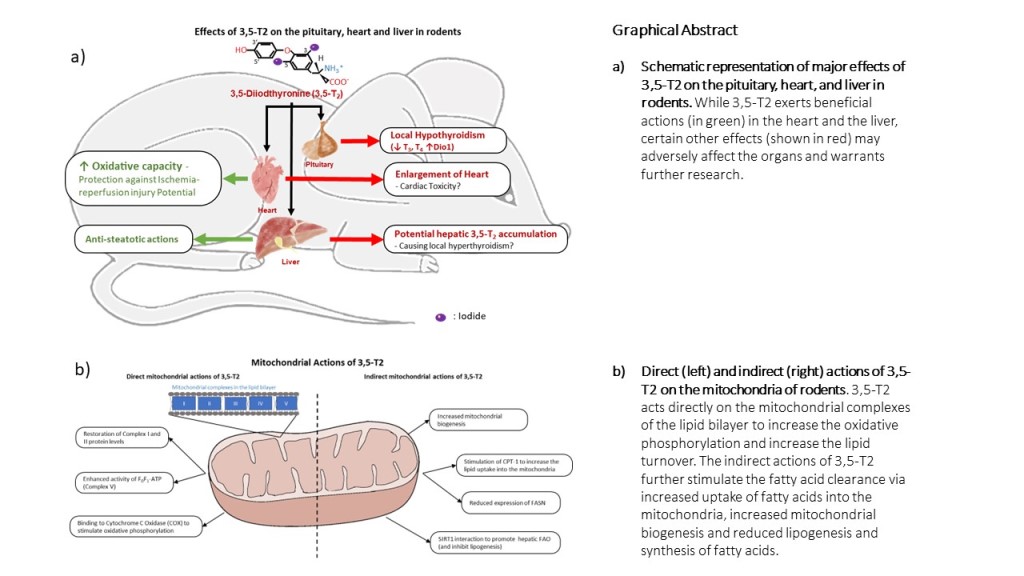Thyroid hormones, their metabolites and synthetic analogues are potential anti-steatotic drug candidates considering that subclinical and manifest hypothyroidism is associated with hepatic lipid accumulation, non-alcoholic fatty liver disease, and its pandemic sequelae. Thyromimetically active compounds stimulate hepatic lipogenesis, fatty acid beta-oxidation, cholesterol metabolism and metabolic pathways of glucose homeostasis. Many of these effects are mediated by T3 receptor β1-dependent modulation of transcription. However, rapid non-canonical mitochondrial effects have also been reported, especially for the metabolite 3,5-diiodothyronine (3,5-T2), which does not elicit the full spectrum of “thyromimetic” actions inherent to T3. Most preclinical studies in rodent models of obesity and first human clinical trials are promising with respect to the antisteatotic hepatic effects, but potent agents exhibit unwanted thyromimetic effects on the heart and/or suppress feedback regulation of the hypothalamus-pituitary-thyroid-periphery axis and the fine-tuned thyroid hormone system. This review focusses on 3,5-T2 effects on hepatic lipid and glucose metabolism and (non-)canonical mechanisms of action including its mitochondrial targets. Various high fat diet animal models with distinct thyroid hormone status indicate species- and dose-dependent efficiency of 3,5-T2 and its synthetic analogue TRC150094. No convincing evidence has been presented for their clinical use in prevention or treatment of obesity and related metabolic conditions.

